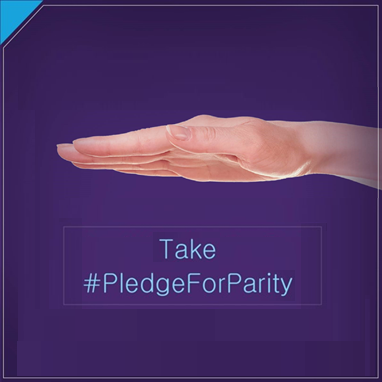
Reshma Valliappan, also known as Val Resh, is an artist-activist for a number of issues related to mental health, disability, sexuality and human rights. She lives with schizophrenia without medication and provides the early voice and leadership for persons living with mental illness to speak and advocate for their own rights.
PE: As a mental health activist, what are the gender based differences you have seen in terms of access to diagnosis and treatment?
As a woman, it is so much easier to be diagnosed with borderline personality disorder or any other personality disorder, including being termed sexually deviant (including having a sexual disorder). Women also have the probability of being diagnosed with post-partum disorders instead of these being addressed as hormonal imbalances. Treatment indefinitely affects a woman's menstrual cycle which further complicates the full functioning of her body. Other non-medicinal treatments such as ‘getting her married’ are believed to cure her disorder(s).
PE: Do you see more women being harshly treated? Is institutional incarceration a bigger issue among women with mental health issues?
Yes it is. Any girl or woman who is independent, and stands for her own choices and ways, is already considered 'bad' products of society. It is very easy to go about diagnosing and locking up such women under the assumption that they were displaying aggressive behaviour towards so and so. Incarceration of women with mental health issues are all because of dowry, property, domestic violence and abuse. And as always, men get away with it. In-laws are involved in such matters too.
PE: Is the independence/ independent choice of women with mental illness at greater risk?
Yes of course. The day a woman opens her mouth and says 'I am not going to tolerate what is done against my mind, my body and my spirit', society begins having a problem with her. When the world over cannot make room and space for strong, bold, opinionated, rebellious, creative women, where is the question of a woman with mental illness having any say in her choice? Decisions and choice making is and always has been a man-thing, even if it concerns the physical health state of a woman - there is always a man who is making the decision on the pretext that he will always know better because he is the man.
PE: Women typically are good at building social networks. Does this help them in their mental illness? Do they have better access for support or is that a myth?
It isn't a myth. There is no physical space for women to just share their immediate stressors, worries, or random musings with each other without being judged at face value. Social networking has allowed a lot of women to feel they aren't alone while voicing their opinions over a given set of discriminations which very often have a large number of misogynist men trolling them and calling them names. Under such circumstances, I've seen how women who don't even know the other would stand up for her and support. This has brought a lot of us together. I have seen it work for me. As all of us are located in different parts of the world and sometimes it is humanly impossible to find someone who just 'gets' you. Then again, it is not necessarily true that another woman would 'get' you because we are all so different. However it is safe to say that we do realize it is still a man's world and women do 'get' each other often without having to say much, especially when it concerns issues related to sex and reproduction.
PE: On women's day, what is your wish for women with mental health issues and their family and friends?
- That irrespective of mental health issues, family and friends respect a woman in any form she is and not just on this day. That other women themselves stop demeaning another one of their kind because the world as we know of it has enough rape, abuse, stigma, discrimination, torture and cruelty being perpetrated on her.
- That when a woman says she is in pain, don't tell her it's in her mind. A lot of her pain is caused by the insults, trauma, victimization, force, disrespect, humiliation she is facing every day in her own home.
- That when a woman says she does not want to get married, don't promote her legal rape.
- That when a woman says she had sex outside of marriage, don't call her a slut and throw her out. If she has a child, don't burn her.
- That when a woman says she does not want to have sex with her husband, don't tell her it's her duty.
- That when a woman is showing no interest in advances from anyone nor has any interest in family, don't try to fix her with medications for a disorder. She is asking for freedom. If she is asking for freedom, know that you have been controlling her. Stop controlling her.
- I wish that all women embrace their inner wild spirit, their shakti, their divine feminine, their true nature or whatever other words they connect themselves to and by doing so they become a collective part of this planet's healing for each other and its future children. And anyone who stops her should just shut up or be swallowed by mother nature.
Reshma Valliapan was born in Malaysia. She is an Ashoka Fellow, runs a community called The Red Door and has written a book "Fallen Standing" on her early experiences.







